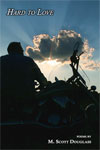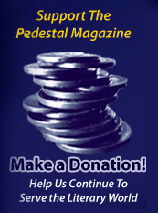Jeanne Marie Beaumont - Impr ...
John Bradley - The Art of Sl ...
William Lusk Coppage - The C ...
Kyle Gray - Through the Fenc ...
Kathleen Hellen - On the Wes ...
Tyler King - Sustain
Lynne Knight - Dog Is Your C ...
Bonnie Wai-Lee Kwong - The R ...
George Looney - The Eternal ...
Sarah Maclay - 49
Marilyn Ringer - The Off-Han ...
George Wallace - bridget

Hard to Love
The Lord of Chance is my shepherd. |
|
|



